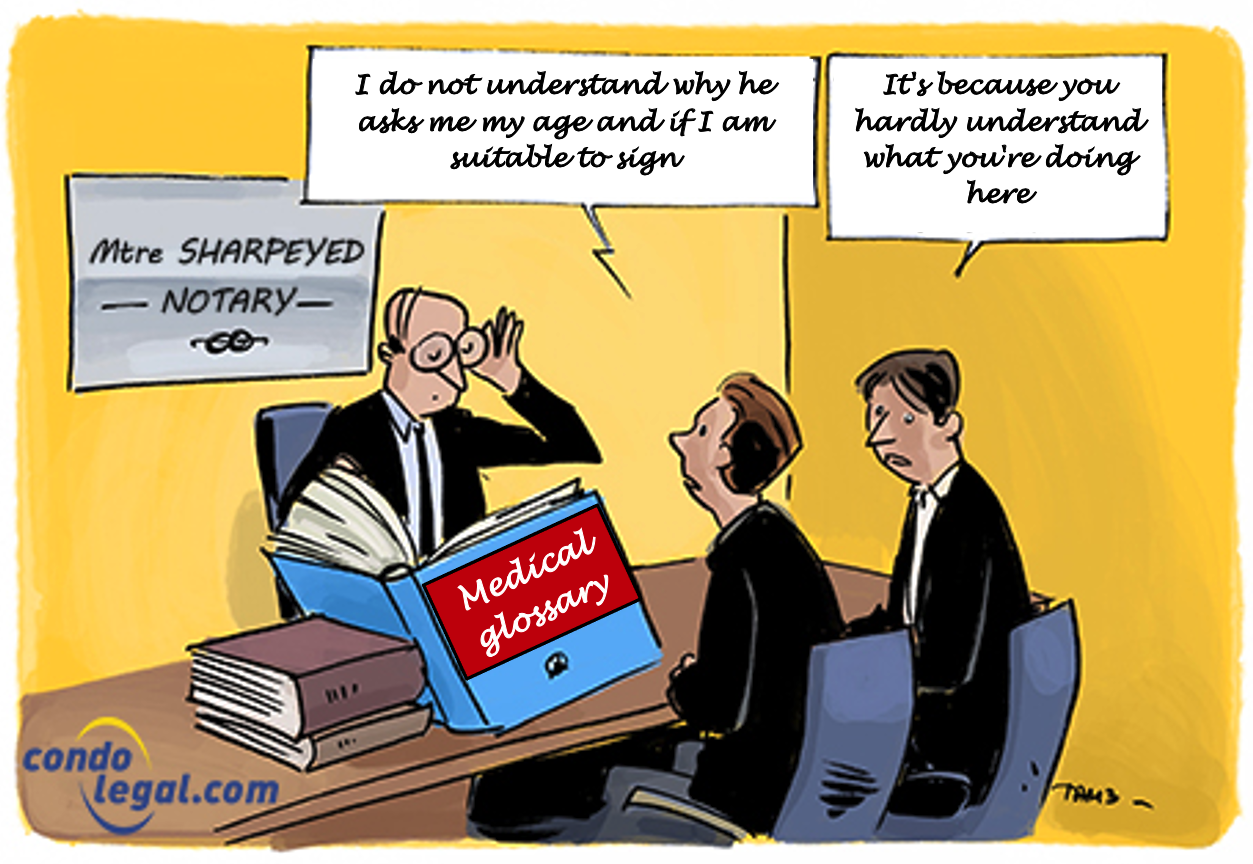 When the sale of immovable property goes through the notary, the latter must ensure, as a public officer, the proper execution of the contract, while giving him the necessary legal certainty. Because of its particular effects under the law, the notarial deed has much more stringent requirements and formalities than those applicable to an ordinary document. In this regard, section 43 of the Notaries Act prescribes that: " A notary shall, by all reasonable means, verify the identity, quality and capacity of each party to a notarial act to be signed before the notary."
When the sale of immovable property goes through the notary, the latter must ensure, as a public officer, the proper execution of the contract, while giving him the necessary legal certainty. Because of its particular effects under the law, the notarial deed has much more stringent requirements and formalities than those applicable to an ordinary document. In this regard, section 43 of the Notaries Act prescribes that: " A notary shall, by all reasonable means, verify the identity, quality and capacity of each party to a notarial act to be signed before the notary."
The meticulous attention to details, the verification of the identity of the parties and the numerous controls to which it is subjected will give you added security and peace of mind.
Verification of the identity
The notary must first verify the identity of the vendor and purchaser. He is compelled to do so, even if he knows you personally and he must keep this information as elements of proof in his files. This information will remain confidential.
In order to be acceptable, ID proof must be issued by and emanate from a recognized entity. The validation of your identity will be carried out upon presentation of two identity documents issued by a reliable and independent organization. These identification documents must be legible and in force.
In the case of a natural person, the identity of the parties is verified in accordance with sections 5 et 6 du Règlement sur la tenue des dossiers et des études des notaires. (Regulation on the management of the files and of notarial firms).The most commonly used pieces of ID are a driver’s licence, a health care card or a passport. Other ID documents are acceptable such as official documents issued by a foreign country. In such cases, you should ask your notary in advance if they are acceptable. If it is a legal person, the identity of the latter will be made in particular by an audit in the Registre des entreprises du Québec, since any legal person that carries out transactions on a regular basis in Québec must register.
Verification of the quality
Verification of a person's status (quality) refers to their role in the transaction: shareholder, director, liquidator, etc. The notary must thus verify the quality of all the parties to the deed of sale, by any means he deems necessary.
Verification of the capacity
Also, the notary must ensure that the persons signing the deed of sale have the capacity to contract, such as for example if the vendor has all the rights required to sell the property. This is why the notary must, amongst other verifications, ascertain the civil status and the matrimonial regime of the vendor. He may request from you other documents, as for example, a certificate of marriage or a copy of your divorce judgment.
Furthermore, the notary must ensure that the powers of attorney, proxies and resolutions allowing a person to act on behalf of other persons are valid. Thus, if one of the parties is a legal person, the capacity of the latter will be reflected in a resolution which will designate the officer who may represent it, in particular in the signature of the deed of sale.
In addition, the notary must, in certain circumstances, be concerned about the state of mental health of the seller. As a public officer, he must, in particular, take all reasonable measures to ensure the seller's ability to dispose of it. By discussing with the latter and questioning him, he will be able to verify that his faculty of discernment is not impaired, that the act is carried out with the necessary lucidity, that the provision expresses his will, and that it is not under the influence of a third party. In case of doubt, the notary should suspend the signing of the deed of sale, the time required for a medical certificate attesting to the mental capacity to transact of the seller to be produced.
The notary must also check that the buyer has the necessary funds to proceed with the acquisition of the property. Finally, if the notary comes to the conclusion that one of the parties is incapable of acting, he must refuse to receive the deed.
 WHAT YOU SHOULD KNOW! The verification of identity is carried out by the means of two documents, the origin of which is reliable and independent. In the case of an individual, one of these documents must have a photograph.
WHAT YOU SHOULD KNOW! The verification of identity is carried out by the means of two documents, the origin of which is reliable and independent. In the case of an individual, one of these documents must have a photograph.
 WHAT TO KEEP IN MIND: The contracting party must be capable, which means being in possession of the necessary rights and be able to exercise them.
WHAT TO KEEP IN MIND: The contracting party must be capable, which means being in possession of the necessary rights and be able to exercise them.
 WARNING! ID documents are useful for another important reason: they are assurances that the parties to the transaction are not identity thieves.
WARNING! ID documents are useful for another important reason: they are assurances that the parties to the transaction are not identity thieves.
Return to the super factsheet Deed of Sale
